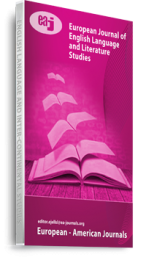This study investigated the influence of learning English on identity switch among senior secondary school students in Owerri zone, Imo State Nigeria. Data for the study were collected by means of a structured and pre-tested questionnaire based on Likert 5-point ratings. The data were analyzed by using Mann-Whitney method of estimating mean scores. Results showed that students are more elated using English in their communications than Igbo, their first language (L1). Findings showed that the influence of English on the cultural identity of the respondents is such that many feel uncomfortable in the midst of their compatriots who do not speak English. Finally, the study demonstrated that Students learning English in Owerri zone switch their identities to suit the target language. The study recommended that productive bilingualism can serve as an educational objective, where teachers may simultaneously cultivate learners’ intrinsic interest, and positive attitudes and beliefs associated with the target language and culture on one hand, and the native language (Igbo) and culture on the other hand.
Keywords: Culture, Ethnicity, Identity, Learning, Second Language

